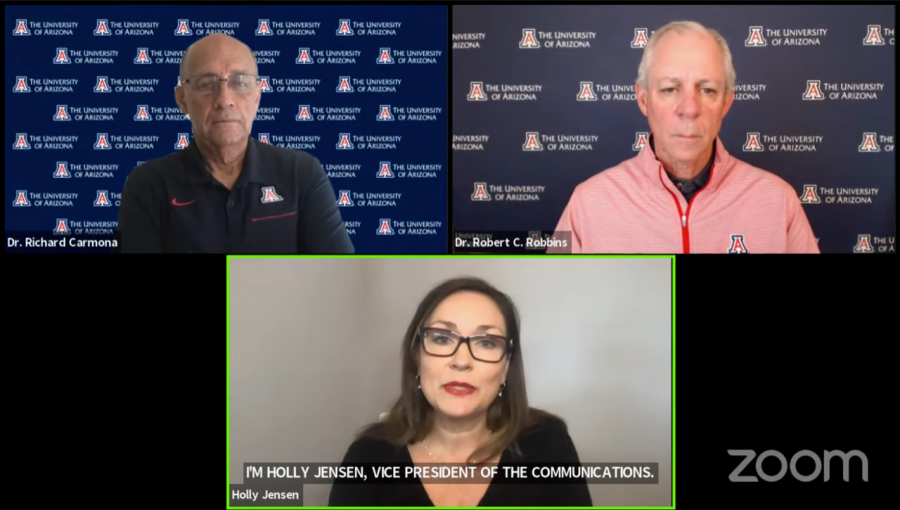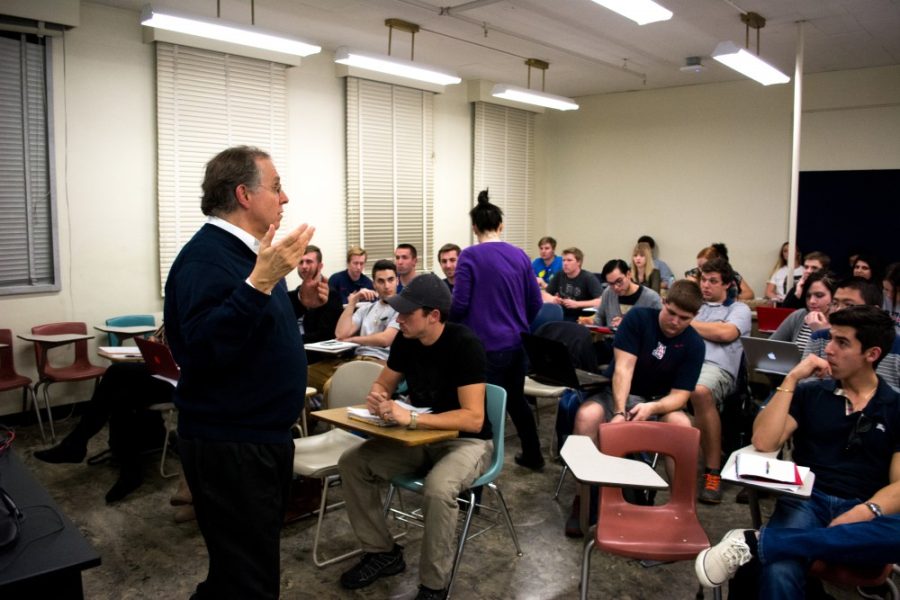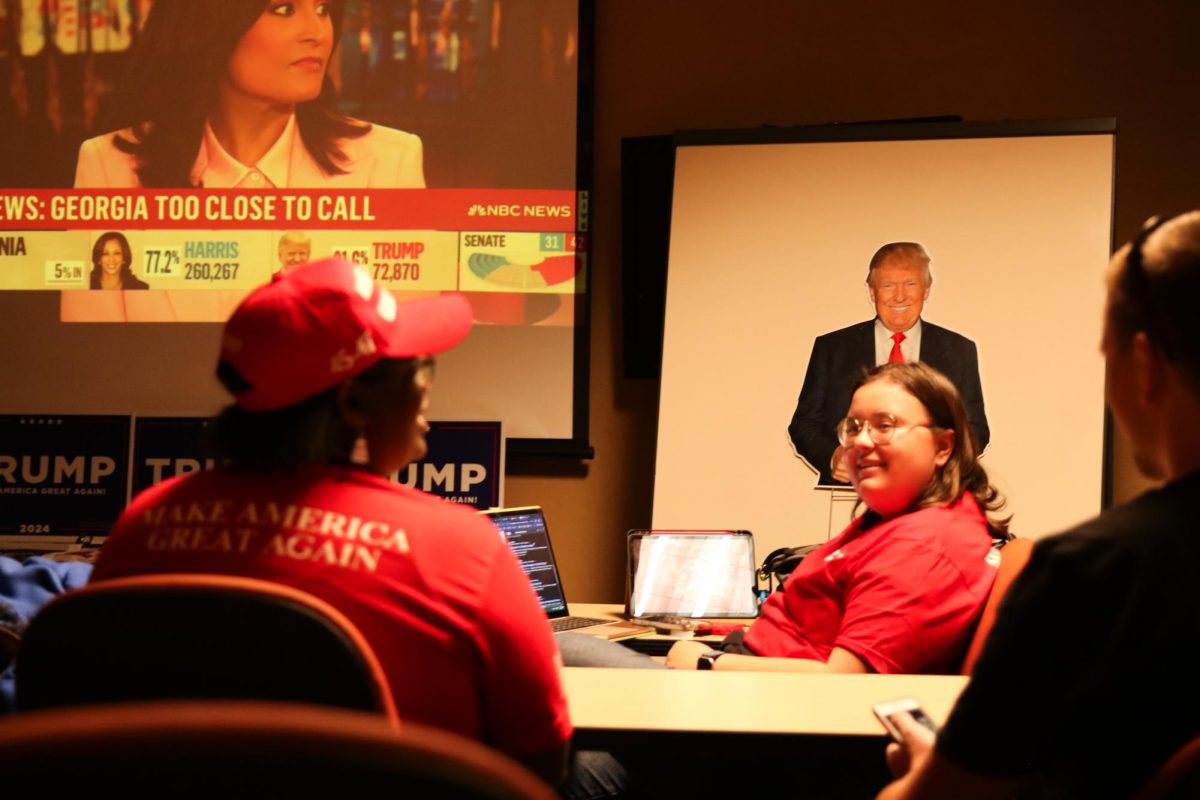The University of Arizona’s COVID-19 reentry task force met Monday morning to discuss the spike in COVID-19 cases around the country and in the university community.
UA President Dr. Robert C. Robbins announced that the university will continue in Phase 2 of reentry, meaning in-person and flex in-person classes of 50 or less will have the option to meet. The university will remain in this phase through the end of the semester.
Robbins noted that the UA will likely begin the spring 2021 semester in Phase 2 as well, but also suggested that it may be possible to progress to classes of up to 100 students sometime during the semester. Any classes of greater than 100 students will be held remotely for the whole semester.
COVID-19 cases, deaths and hospitalizations are up across the board in the state of Arizona, mirroring trends across the country. Cases are up by 68% over the past 14 days for the state.
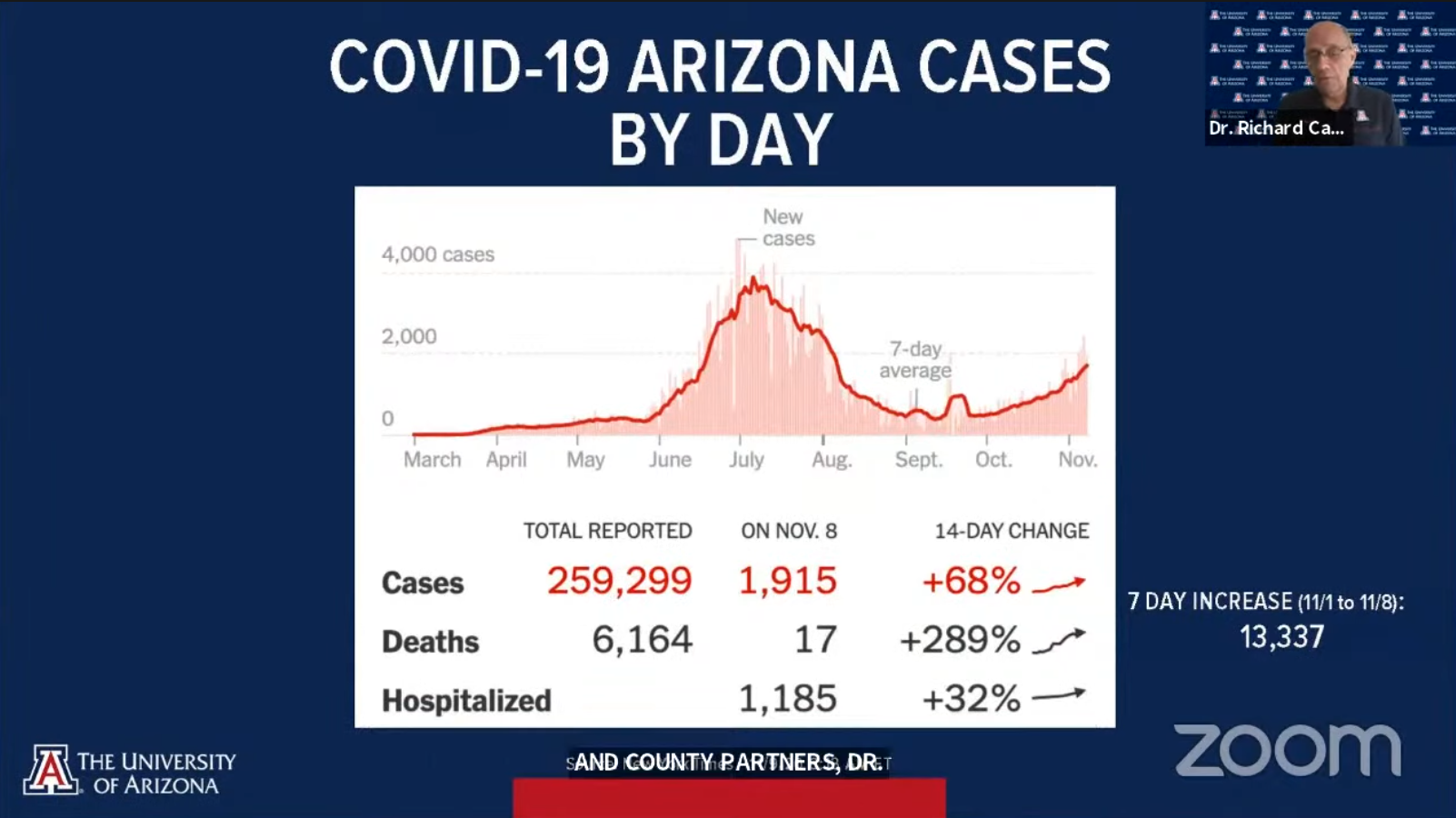
“We continue to see a rise in cases in not only Arizona,” Robbins said, “but nationally, following Halloween and a lot of rallies and a lot of public gatherings. I think we’ll continue to see positive rates go up, but through our testing program on campus, we still are testing about 1,000 people a day and our positivity rate remains low.”
The COVID-19 positivity rate for the past 10 days was 0.9%. Out of the 8,345 tests administered by the university during this period, 71 came back positive.
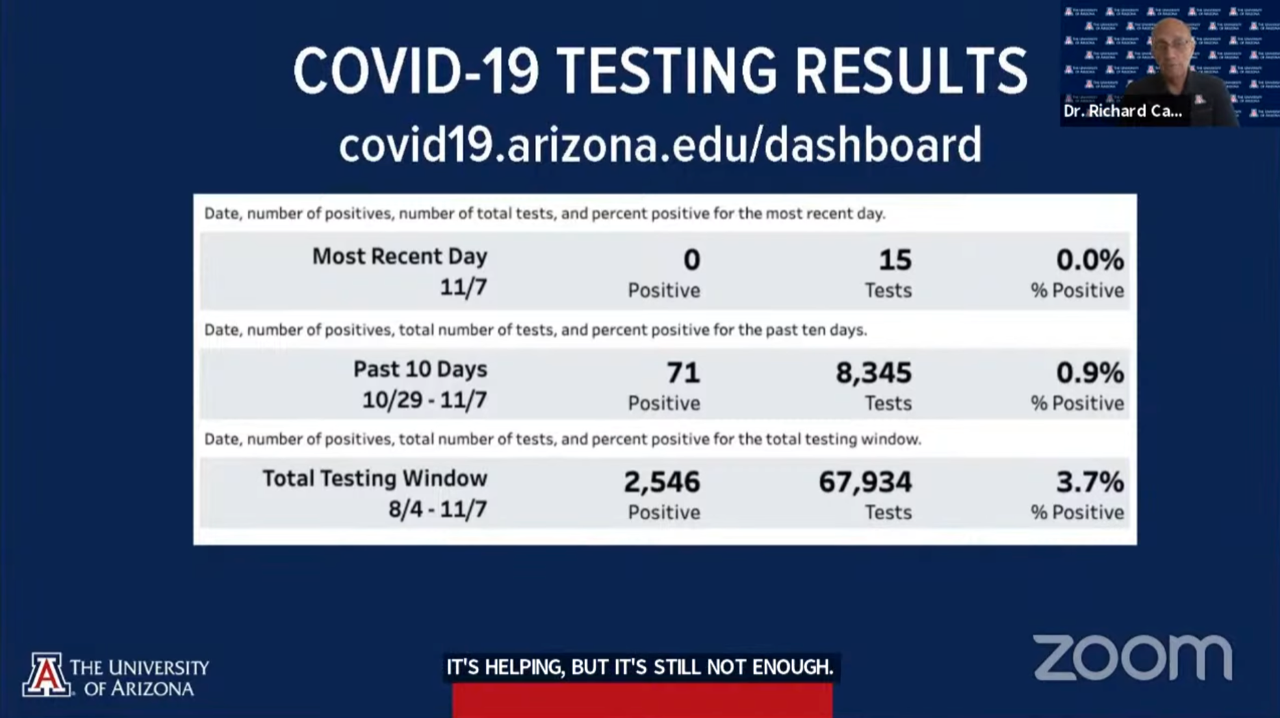
Task Force Director Dr. Richard Carmona reminded students to fill out the pre-holiday travel survey, which was due last week but may still be submitted. The testing blitz began today, Nov. 9, and will last until Nov. 15.
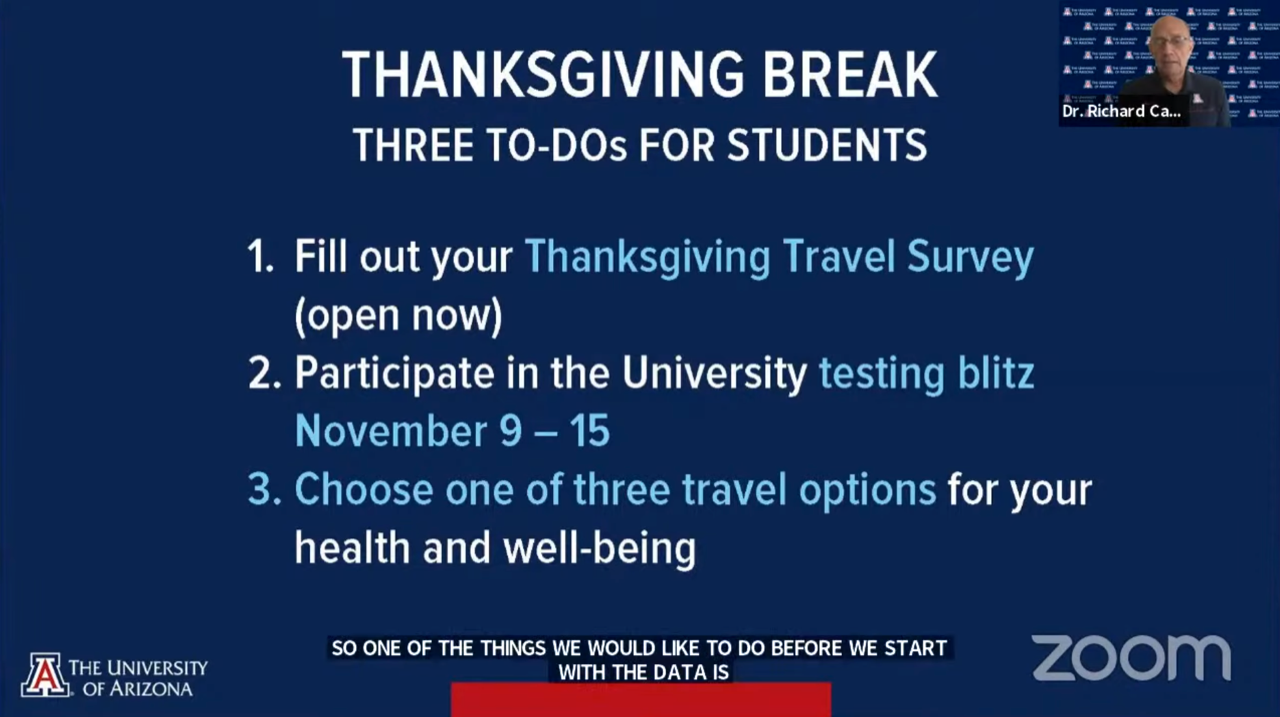
Carmona said that it’s critical for students to fill out the travel survey in order for them to be healthy and informed prior to going home for the holidays.
“We’ve been as transparent as we possibly can,” Carmona said. “We want you to have all of this information so you can each make the best decision so that you can travel safely and be assured that you aren’t taking infection with you to wherever you’re going over any holiday.”
RELATED: COBA left feeling unprioritized after meeting with administration
The rate of transmission — referred to as Rt — in the UA’s zip code area, 85719, increased dramatically within the past couple of weeks, now up to 2.22. The Rt was 1.25 last week and 0.68 the week before that.
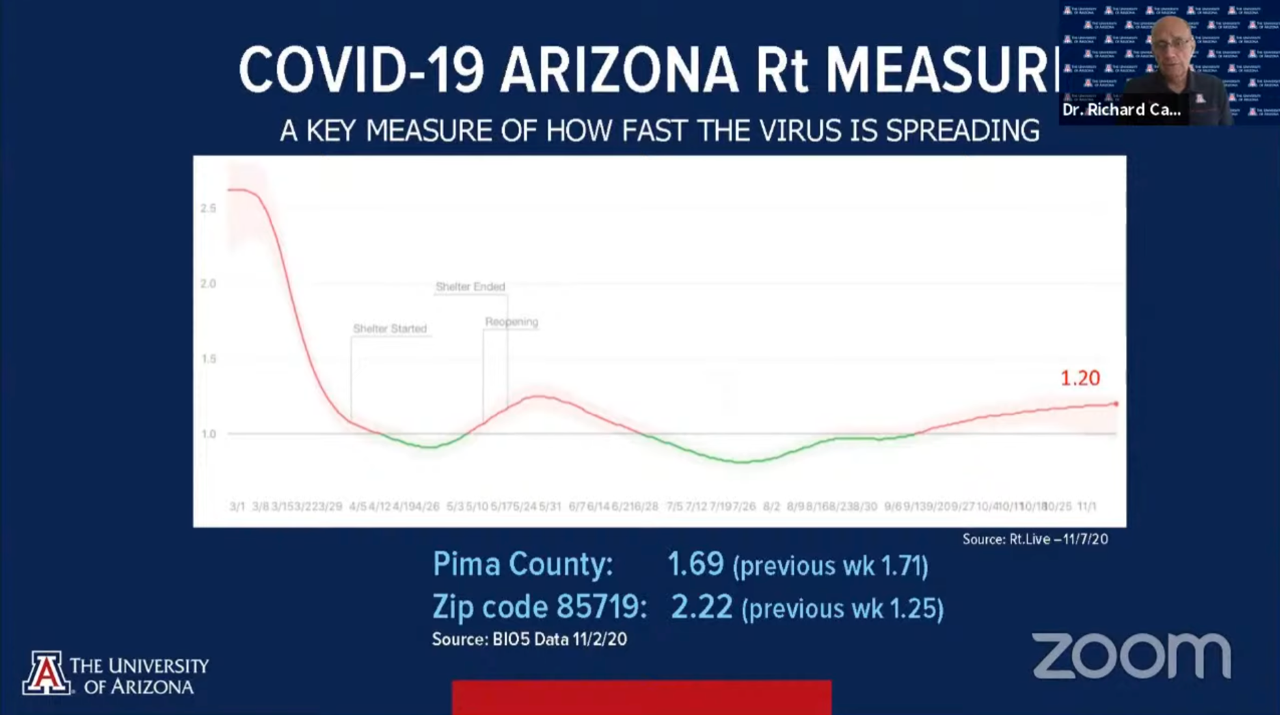
Campus Area Response Team deployments decreased to 7 from 18 the week prior. There were no gatherings of greater than 50 individuals to which the CART teams were deployed.
Still, Carmona voiced his deep concern for the worsening state of the country as COVID-19 numbers continue to spike.
“I’m particularly concerned in what I’m seeing around the rest of the nation,” Carmona said. “I’m particularly concerned that as we come up to the holidays, and as our young men and women are planning to go home and visit loved ones and take vacations, that with a 40% or 50% asymptomatic population, we could inadvertently be spreading disease as much as we’re trying hard to prevent that from happening.”
Despite this, Robbins expressed approval with members of President-elect Joe Biden’s transition team, which he takes as a sign of hope for the country’s future in dealing with the pandemic.
“I was encouraged to see that President-elect Biden named a COVID-19 committee with people who — a lot — were involved in the Obama administration and I think it’s a positive sign that he’s moving forward,” Robbins said. “Every vote will get counted eventually, but he’s making plans to move forward toward what we needed the entire time, which is a national policy.”
RELATED: Election 2020: Joe Biden wins 2020 presidential election
The president also mentioned recent news of a vaccine from the pharmaceutical corporation Pfizer.
“We’re just playing catch-up ball here,” Robbins said. “There was a little exciting news from Pfizer about progress with the vaccine, but that’s really limited — a small number of people. I think that for the vast majority of Americans, it’s going to be as I said all along its probably going to be into the spring of [2022] before we’re able to manufacture enough, distribute and administer a vaccine.”
Carmona also added that the university is preparing the infrastructure to handle and disseminate the vaccine.
“When and if that vaccine is ready,” Carmona said, “we will have storage and distribution capabilities ready to make sure that everybody gets the vaccine.”
In light of a nation struggling with not only a pandemic, but social and political discontent, an economic recession and a mental health crisis, Carmona expressed doubt about ever returning to a pre-pandemic state.
“I don’t know that we’re ever going to return to the world we used to know,” Carmona said.
Follow Kristijan Barnjak on Twitter



